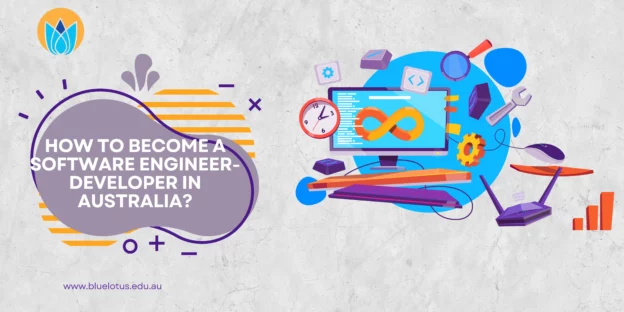Differentiation and Comparison Between Software Engineer and Developer

Understanding the difference between Software Engineer and Developer is critical for anyone aspiring to work in the industry. Often, the two terms are used synonymously, though technically, they have distinct differences:
Similarities
- Problem-Solving: Both roles involve excellent problem resolution skills.
- Programming: Both require competence in coding and software development.
- Collaboration: Teamwork is essential as both roles usually work within a team.
Differences
- Scope of Work: Software engineers typically work at a higher level, designing and monitoring the architecture and structure of entire systems. Developers primarily focus on coding and building applications.
- Background: Engineers usually have a formal education in computer science or engineering. Developers may not necessarily have a formal educational background and can come from various sectors.
- Responsibilities: Engineers often integrate hardware and software, while developers mainly focus on software development.

What It’s Like to Be a Software Engineer/Developer
Becoming a software engineer or developer in Australia is promising but challenging. You immerse yourself in technological innovations, tackle complex issues, and craft software that impacts millions of users. The work environment is dynamic, with opportunities across various industries, such as finance, health, and entertainment.
Becoming a Software Engineer-Developer in Australia

1. Educational Background
- Diploma of Information Technology or Advanced Diploma of Technology: Teaches fundamentals of programming, cybersecurity, database design, and prototyping engineering designs.
- Bachelor’s Degree: A basis in computer science, software engineering, or a related field is common.
- Online Courses: Sites like Coursera, Udemy, and edX offer alternative pathways.
2. Apply Practical Experience
- Internships: Take advantage of internships for practical learning.
- Projects: Work on personal or open-source projects to build a portfolio.
3. Development of Key Skills
- Programming Languages: Master languages like Java, Python, C++, and JavaScript.
- Soft Skills: Enhance communication, teamwork, and problem-solving skills.
4. Certification
- Obtain professional certifications like AWS Certified Developer, Microsoft Certified: Azure Developer, or Google Professional Cloud Developer.
5. Job Hunting
- Explore job opportunities on portals like Seek, Indeed, and LinkedIn.
Software Developer Courses
- Bachelor of Computer Science
- Master of Information Technology
- Advanced Diploma of Information Technology
Recent Positions for Software Developers
| Company | Position | Location | Salary |
|---|---|---|---|
| Atlassian | Software Engineer | Sydney | $120,000 – $140,000 |
| Canva | Back End Developer | Sydney | $110,000 – $130,000 |
| REA Group | Frontend Developer | Melbourne | $100,000 – $120,000 |
| Xero | Full Stack Developer | Brisbane | $90,000 – $110,000 |
| IBM | Software Developer | Perth | $95,000 – $115,000 |

Day-to-Day Activities of a Software Developer
- Coding and Debugging: Writing and testing code to develop software applications.
- Team Collaboration: Regular collaboration with development, design, and project management teams.
- Reviewing Code: Ensuring quality and adherence to standards through code reviews.
- Meetings: Participation in stand-ups and sprint planning.
- Learning: Staying current on the latest technology and best practices.

Skills and Experience for Software Engineer/Developer
Technical Skills
- Expertise in multiple programming languages.
- Knowledge of software development methodologies like Agile and Scrum.
- Proficiency in database management and cloud computing.
Soft Skills
- Strong communication and teamwork abilities.
- Problem-solving and critical thinking skills.
- Adaptability and continuous learning.

Passing Skills Assessment for Software Engineers to Secure Reputable Jobs in Australia
1. Get Prepared: Learn relevant topics and practice writing programs.
2. Understand the Format: Familiarize yourself with the assessment format and types of questions.
3. Practice Time Management: Develop the ability to tackle problems within a stipulated time.
4. Mock Tests: Take mock tests to build confidence.
5. Ask for Feedback: Obtain feedback on trial performances and use it to improve.

FAQs
What Skills Do You Need to Become a Software Developer?
- Mastery of programming languages such as Java, Python, and C++
- Knowledge of algorithms and data structures
- Understanding of software development methodologies
- Strong communication skills
- Problem-solving abilities
- Team collaboration skills
What are the characteristics of a successful software developer?
- Enthusiasm for technology
- Curiosity and eagerness to learn
- Attention to detail
- Patience and persistence
What’s the Average Pay for a Software Developer?
The average salary for a software developer in Australia ranges from $90,000 to $120,000 per year, varying with experience and location.
What are the working hours for a software developer?
Software developers usually work regular office hours, though project deadlines may require overtime or flexible hours.
Is there a list of core coding languages you must know as a software developer?
Yes, the primary languages include:
- Java
- Python
- C++
- JavaScript
- SQL
What are the entry requirements for international students to study software engineering courses?
International students typically need to meet the following requirements:
- High School Diploma or G.E.D.
- Proficiency in English (IELTS, TOEFL)
- Academic documents
- Statement of Purpose


